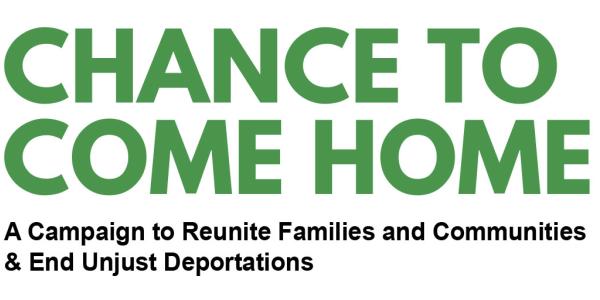“I can't fight for them from here.”
Tina, now 30, arrived in the United States as a child when she was three years old, and spent much of her youth helping to care for her brother who had Down syndrome and a life-threatening heart condition. She received Deferred Action for Childhood Arrivals (DACA), and later married and had two children. Tina’s husband subjected her to violence that continues to have a lasting toll on her and her loved ones. As part of his abuse, Tina’s husband pressured her to bring him drugs while he was incarcerated; the resulting criminal conviction meant that Tina lost her DACA status and was ultimately deported. Deportation separated Tina from her two U.S. citizen children, ages 10 and 9, who remain in the United States.

Listen to Tina share her story on WBUR's Here and Now:
A loving childhood
Tina was one of three siblings growing up in a loving family in Ohio. She is devoted to her family, and as a teenager often missed school activities to stay home and care for her brother, who has Down syndrome and a life-threatening heart condition.
An abusive marriage
Tina’s secure family life changed after she got married in 2012. Her husband was physically and psychologically abusive throughout their six years of marriage, during which she gave birth to two children. Tina’s husband, who was aware of her immigration status, never filed a petition for Tina to obtain lawful permanent residency. Further, he engaged in unlawful behavior that jeopardized Tina’s DACA status. Tina’s husband was incarcerated shortly after their marriage, but he continued to try to control Tina from jail, pressuring her to bring him prescription drugs. This action, a part of the cycle of abuse, resulted in Tina being convicted of a criminal offense that triggered the government to strip her of her DACA status and deport her.
Exiled from her children
Tina now works in Morocco as a full-time English teacher to students who remind her of her own young children, who she talks to everyday by video. Tina’s children spend half their time with her ex-husband and his family. Tina lives in fear for their safety and well-being, knowing they have been exposed to drugs and gun violence while in his care.
“My hands are behind my back. I can't go to court for [my children]. I can't fight for them from here [Morocco]. I tried. I’ve called lawyers from here to see what options I have. Only option that I was ever given is that if they come here [Morocco], my country would defend me as far as them staying with me...I wouldn't even want to put my kids in a situation where I know I’m not stable. They put me in a really bad situation.”
Tina is asking DHS to exercise its discretion and grant her request for humanitarian parole so that she can reunite with her two children.
Tina is represented by Megan Hauptman at the National Immigration Project of the National Lawyers Guild.
- Deported to Morocco in 2017 after 20 years in the U.S.
- Lost DACA protection based on conviction resulting from domestic abuse
- Lived in Clayton, Ohio
- Separated from two young children
Image
Read more stories:


